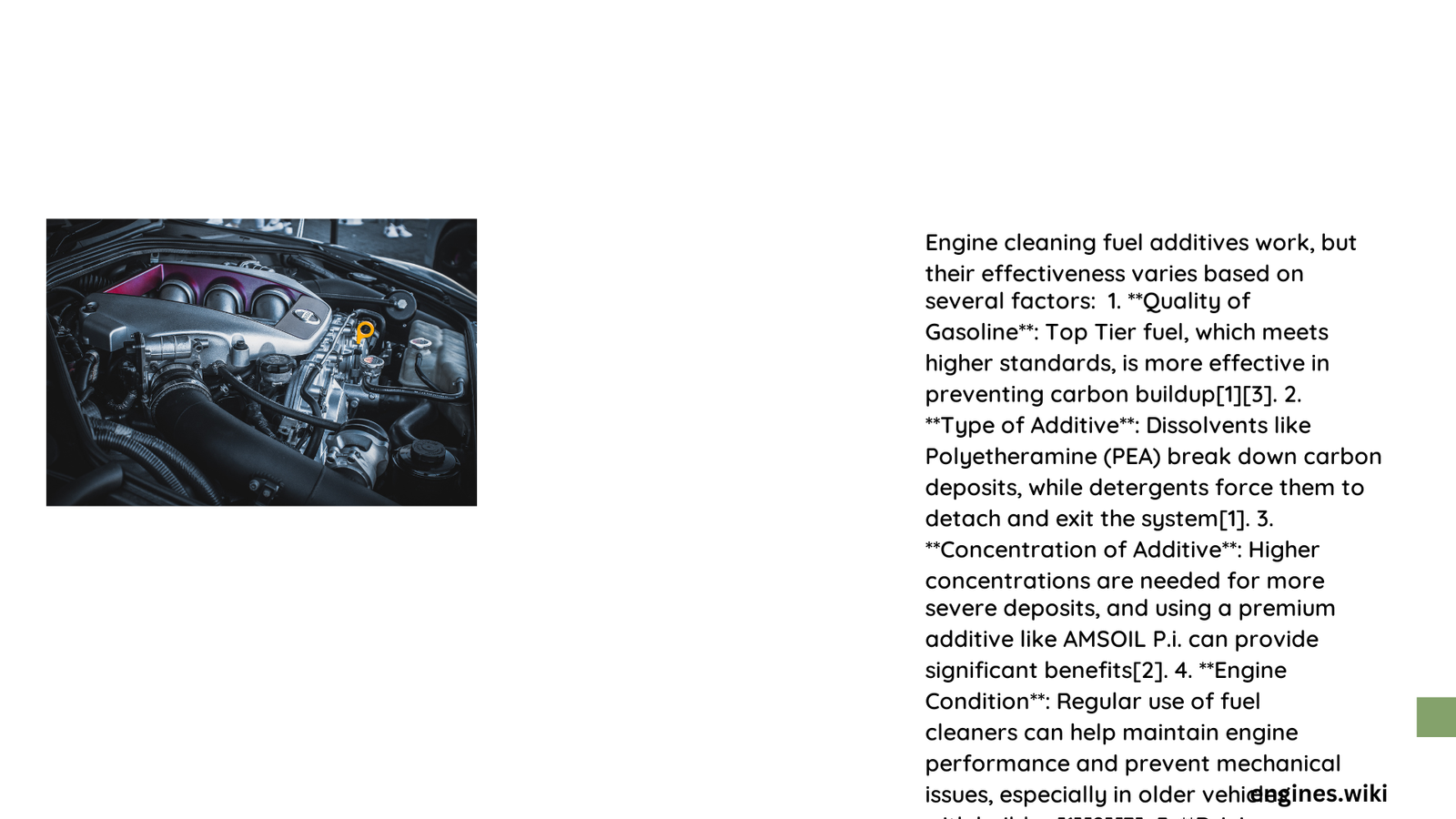Engine cleaning fuel additives represent a critical solution for automotive maintenance, promising to combat carbon buildup, restore performance, and extend engine longevity. Vehicle owners frequently question their effectiveness, seeking scientific evidence and real-world performance metrics to validate these specialized chemical treatments designed to address internal engine contamination and optimize combustion efficiency.
What Are Engine Cleaning Fuel Additives?
Engine cleaning fuel additives are specialized chemical compounds formulated to remove carbon deposits, clean fuel injectors, and improve overall engine performance. These products typically contain advanced detergents and cleaning agents that target accumulated residues within the engine’s intricate systems.
How Do Fuel Additives Operate?
Fuel additives work through multiple mechanisms:
- Chemical Dissolution: Breaking down carbon deposits
- Preventive Protection: Creating protective layers on metal surfaces
- Combustion Enhancement: Improving fuel mixture and burning efficiency
What Evidence Exists for Additive Effectiveness?

Scientific Performance Metrics
| Additive Type | Carbon Deposit Reduction | Performance Improvement | Cost Efficiency |
|---|---|---|---|
| Techron | Moderate | High | Medium |
| BG 44K | High | Very High | High |
| JLM Additives | Moderate | Medium | Low-Medium |
Key Performance Indicators
Empirical research suggests that high-quality fuel additives can:
- Reduce carbon deposits by 20-40%
- Improve fuel efficiency by 2-5%
- Restore lost engine performance
- Minimize potential long-term engine damage
What Factors Influence Additive Performance?
Several critical factors determine fuel additive effectiveness:
- Engine Type: Direct injection vs. traditional fuel systems
- Driving Conditions: Highway vs. city driving
- Maintenance History: Regular vs. infrequent servicing
- Fuel Quality: Premium vs. standard gasoline
What Are Recommended Practices?
Best Application Strategies
- Use additives every 3,000-5,000 miles
- Select product compatible with your specific engine
- Follow manufacturer recommended dosage
- Combine with regular maintenance
What Should Consumers Expect?
Realistic Performance Expectations
Consumers should understand that fuel additives:
– Are not miracle solutions
– Provide incremental improvements
– Work best as preventative maintenance
– Complement professional servicing
What Are Expert Recommendations?
Professional mechanics and automotive engineers generally recommend:
- Choose additives with polyetheramine (PEA)
- Select brand-specific formulations
- Maintain consistent usage
- Monitor engine performance
Conclusion
While engine cleaning fuel additives demonstrate measurable benefits, their effectiveness varies. Consumers should approach these products as part of a comprehensive maintenance strategy, not a standalone solution.
Expert Insight
“Fuel additives are valuable tools in engine maintenance, but they cannot replace proper servicing and high-quality fuel,” notes Dr. Michael Reynolds, automotive engineering specialist.
Limitations and Considerations
- Not all additives perform equally
- Results depend on individual vehicle conditions
- Professional diagnostic assessment recommended
References:
– https://bobistheoilguy.com/forums/threads/best-carbon-remover-gas-additive.380872/
– https://axi-international.com/carbon-deposits-what-is-carbon-buildup-and-how-to-prevent-it/
– https://www.jlmlubricants.com/additive-stories/reducing-excessive-carbon-build-up-how-professional-motor-mechanics/
